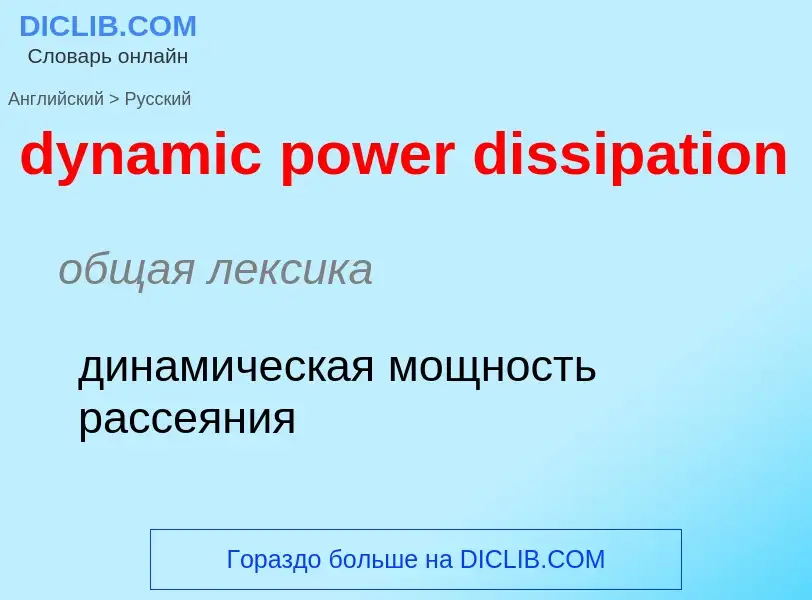Vertaling en analyse van woorden door kunstmatige intelligentie ChatGPT
Op deze pagina kunt u een gedetailleerde analyse krijgen van een woord of zin, geproduceerd met behulp van de beste kunstmatige intelligentietechnologie tot nu toe:
- hoe het woord wordt gebruikt
- gebruiksfrequentie
- het wordt vaker gebruikt in mondelinge of schriftelijke toespraken
- opties voor woordvertaling
- Gebruiksvoorbeelden (meerdere zinnen met vertaling)
- etymologie
dynamic power dissipation - vertaling naar russisch
общая лексика
динамическая мощность рассеяния
[disi'peiʃ(ə)n]
общая лексика
диссипация
рассеяние
рассеивание
потери
утечка
медицина
потеря
существительное
общая лексика
рассеивание
рассеяние
исчезновение
разложение
разрушение
распад
мотовство
растрачивание
проматывание
отвлечение
развлечение
разгульный образ жизни
(пьяный) разгул
расточение
легкомысленные развлечения
беспутный образ жизни
утечка
['disipeitiv]
общая лексика
диссипативный
рассетвающий
создающий рассеяние
прилагательное
специальный термин
рассеивающий
вызывающий рассеивание
физика
диссипативный
Definitie
Процесс действия по знач. глаг.: размыкать, размыкаться.
Wikipedia
In thermodynamics, dissipation is the result of an irreversible process that takes place in homogeneous thermodynamic systems. In a dissipative process, energy (internal, bulk flow kinetic, or system potential) transforms from an initial form to a final form, where the capacity of the final form to do thermodynamic work is less than that of the initial form. For example, heat transfer is dissipative because it is a transfer of internal energy from a hotter body to a colder one. Following the second law of thermodynamics, the entropy varies with temperature (reduces the capacity of the combination of the two bodies to do work), but never decreases in an isolated system.
These processes produce entropy at a certain rate. The entropy production rate times ambient temperature gives the dissipated power. Important examples of irreversible processes are: heat flow through a thermal resistance, fluid flow through a flow resistance, diffusion (mixing), chemical reactions, and electric current flow through an electrical resistance (Joule heating).

